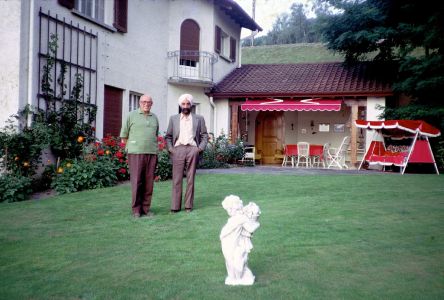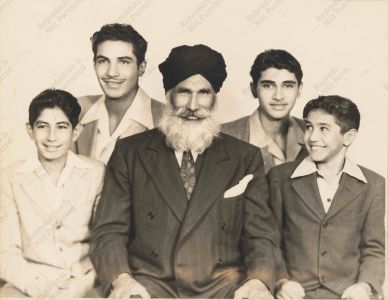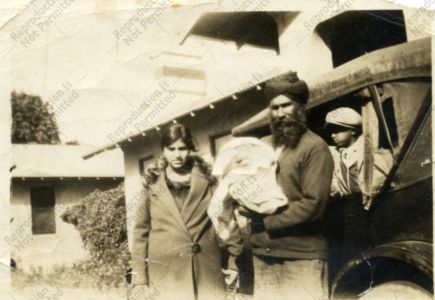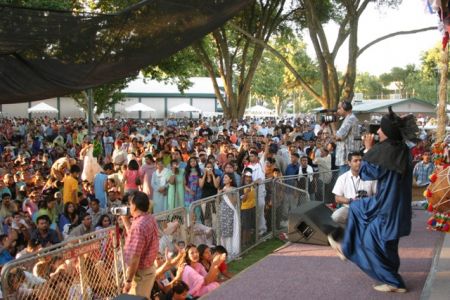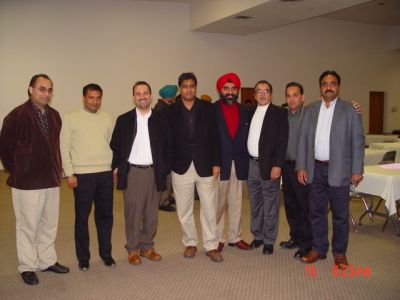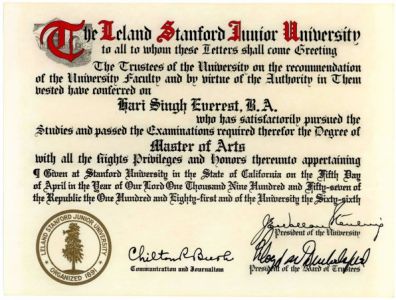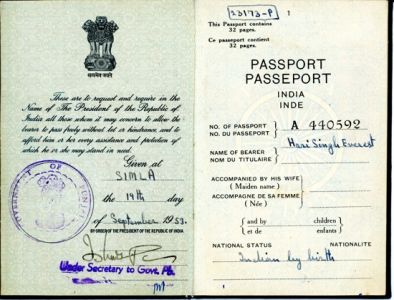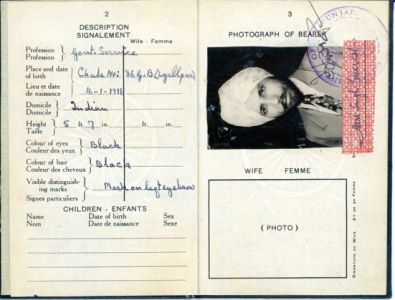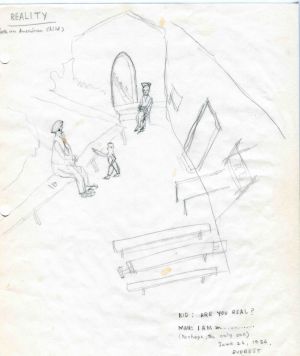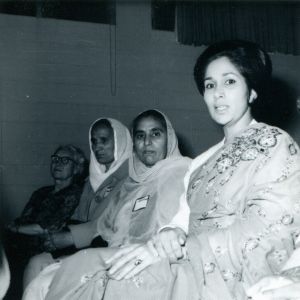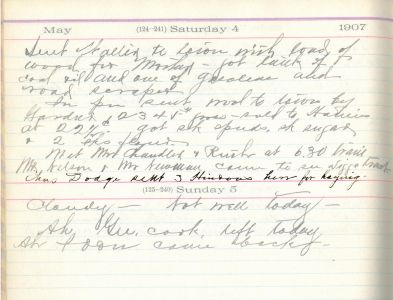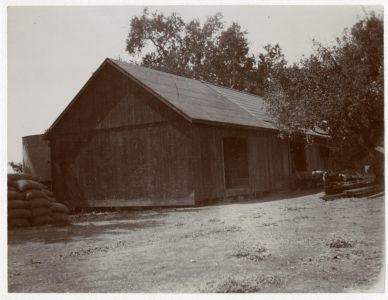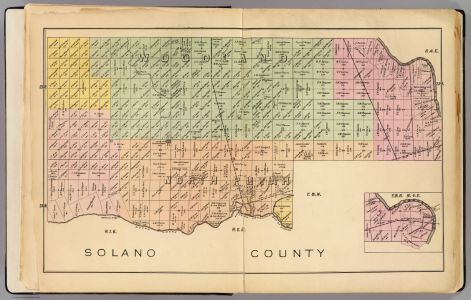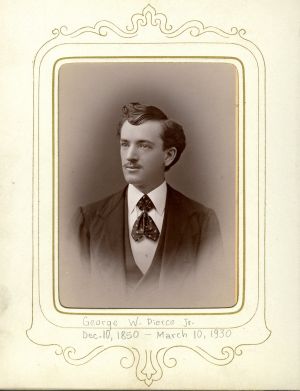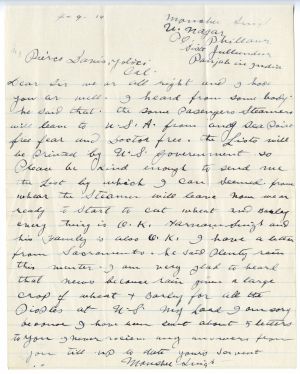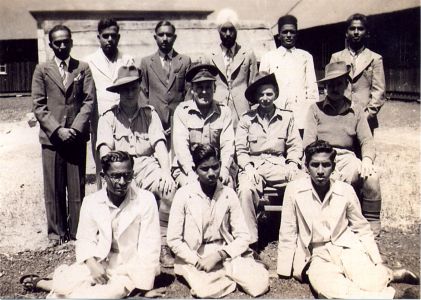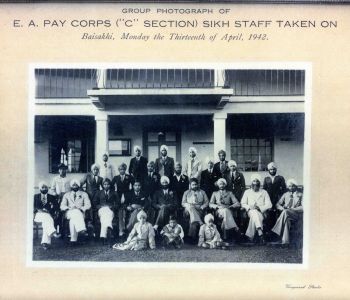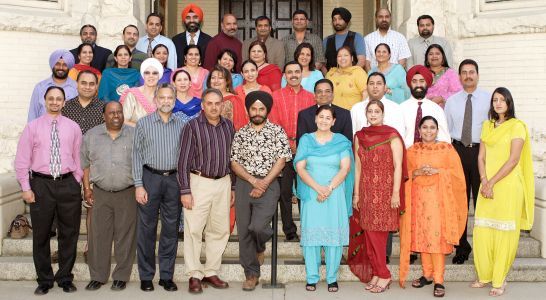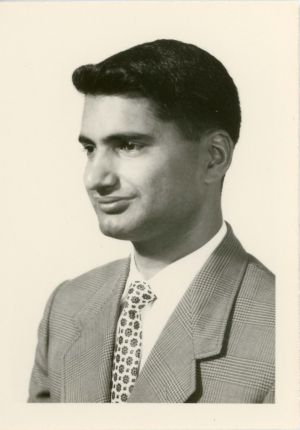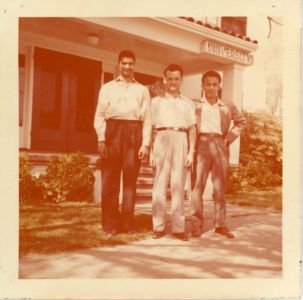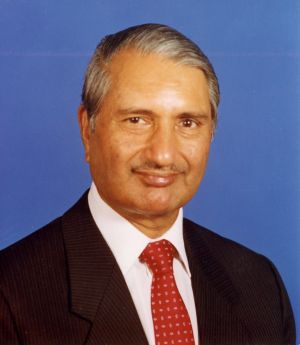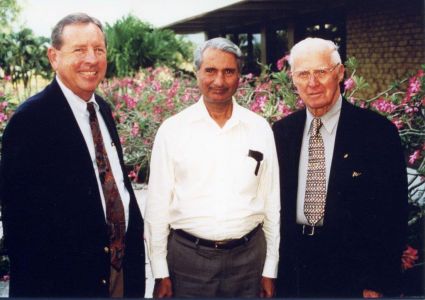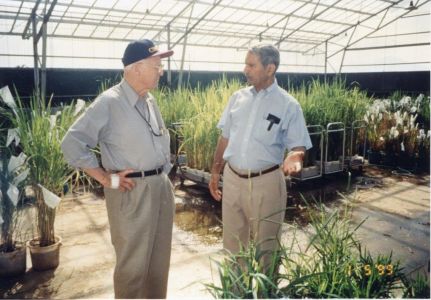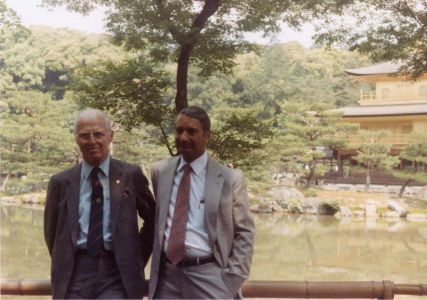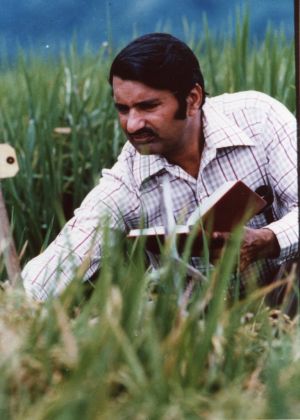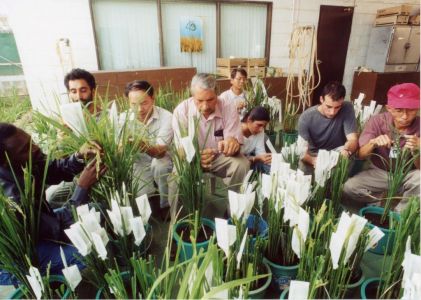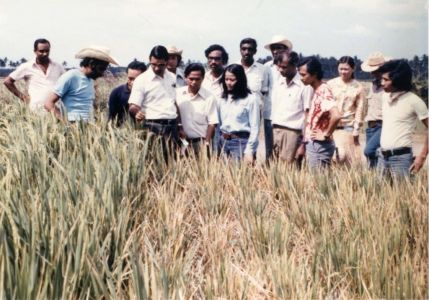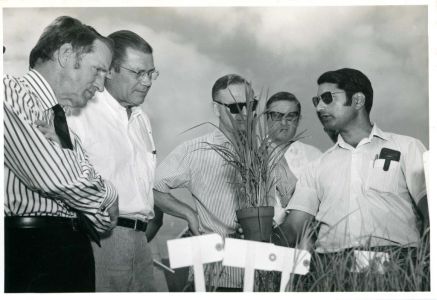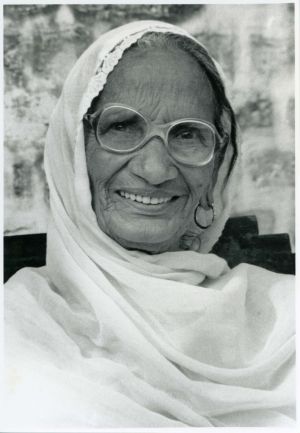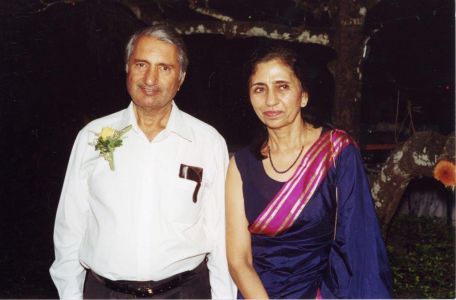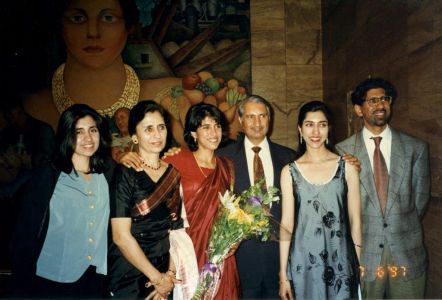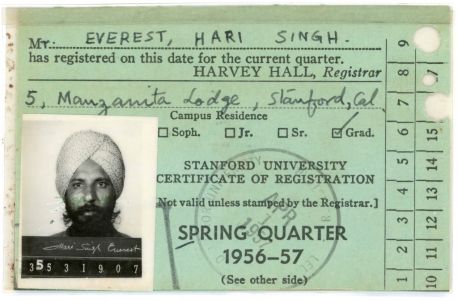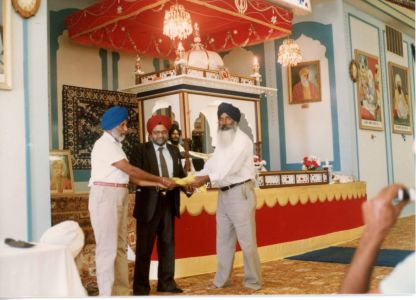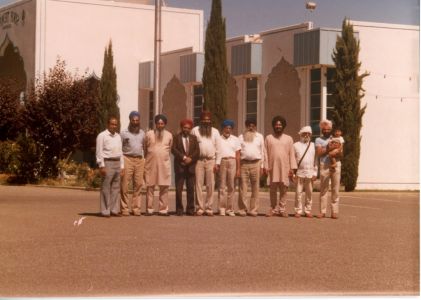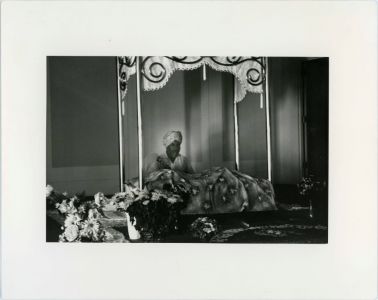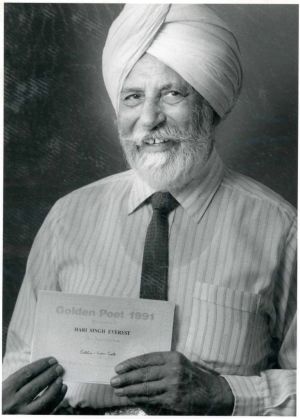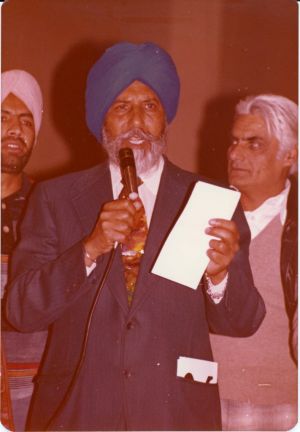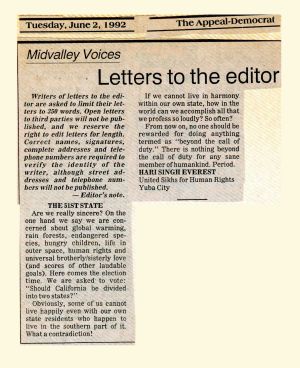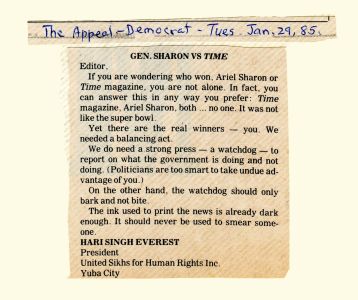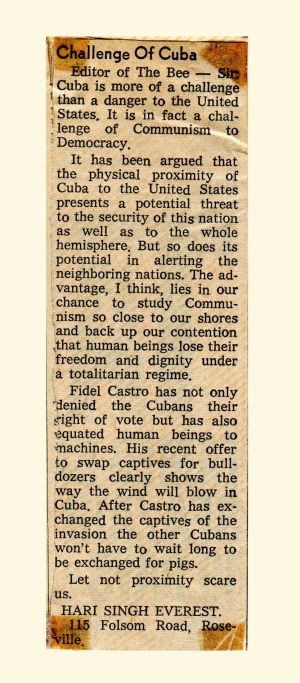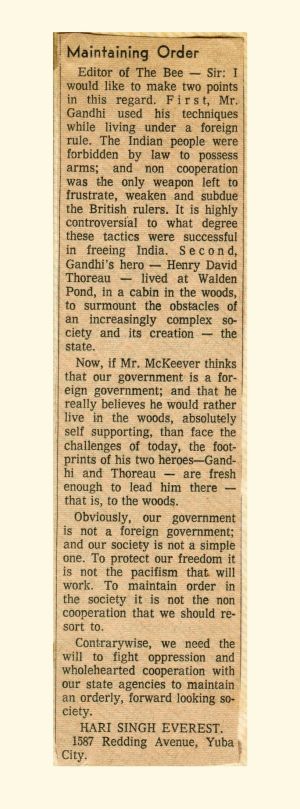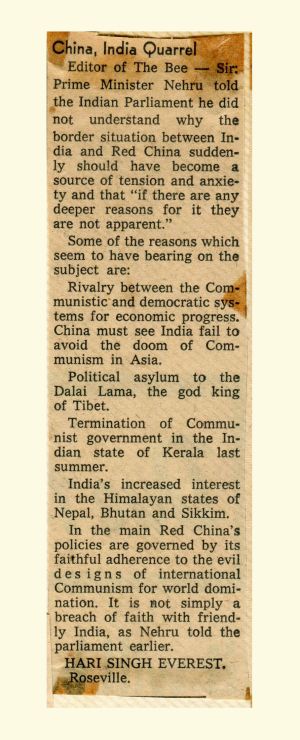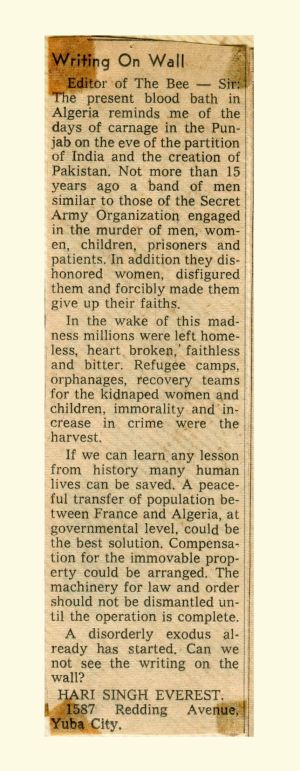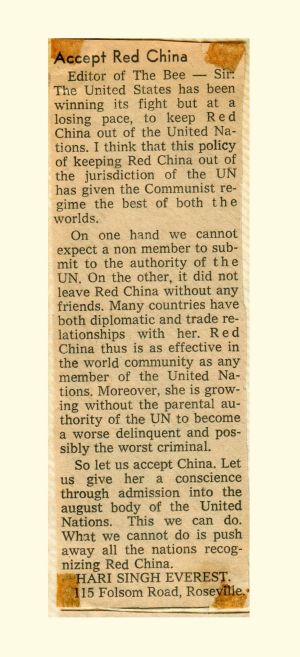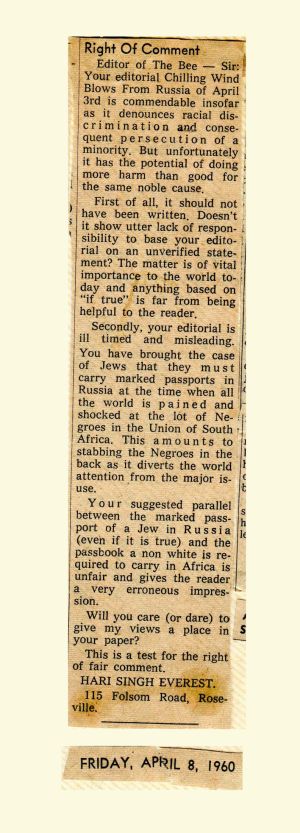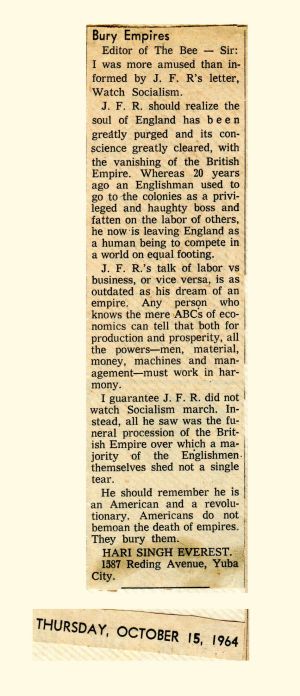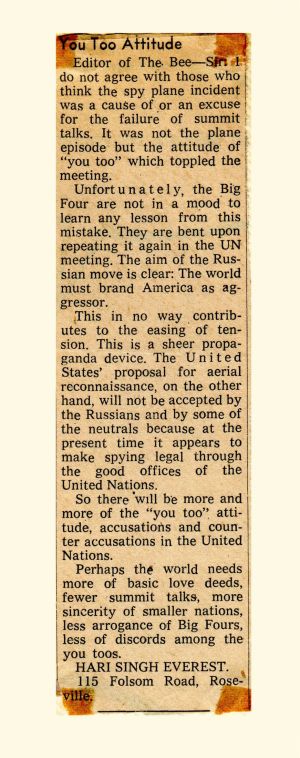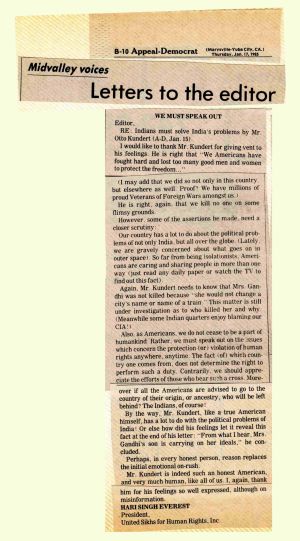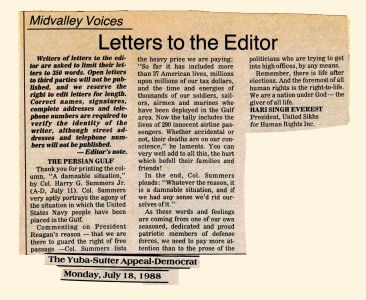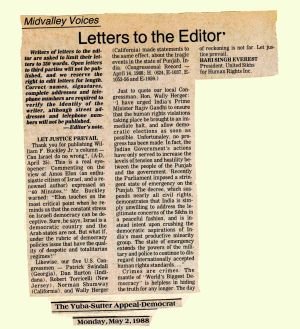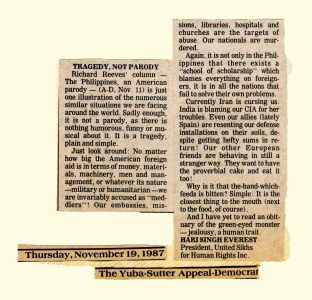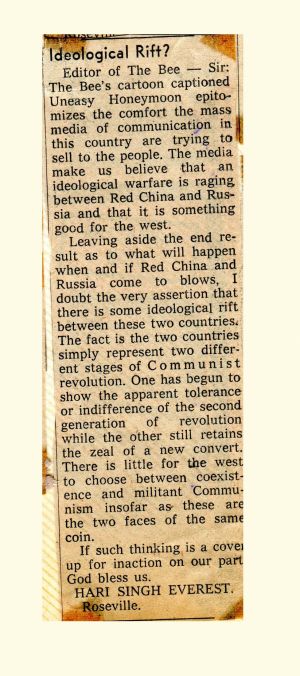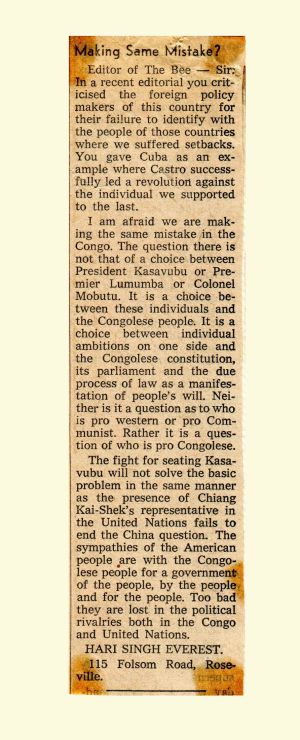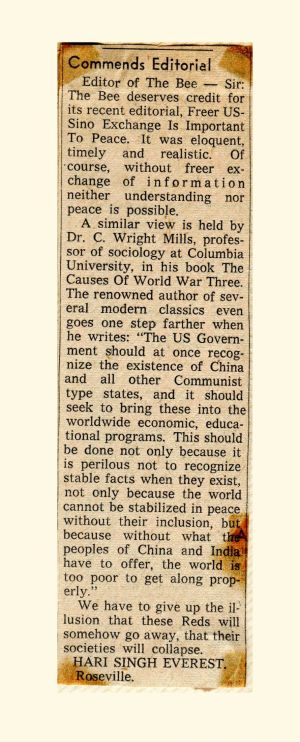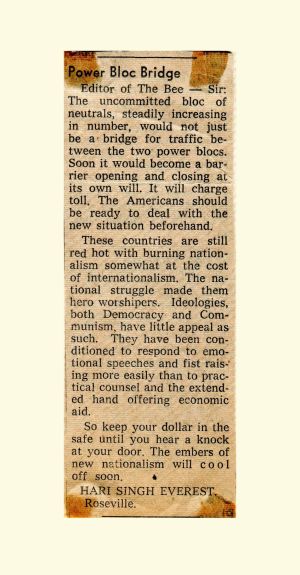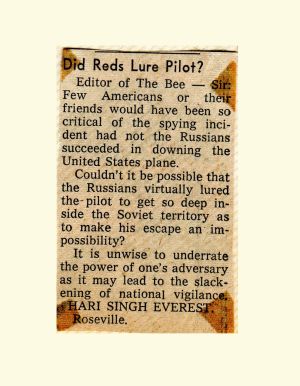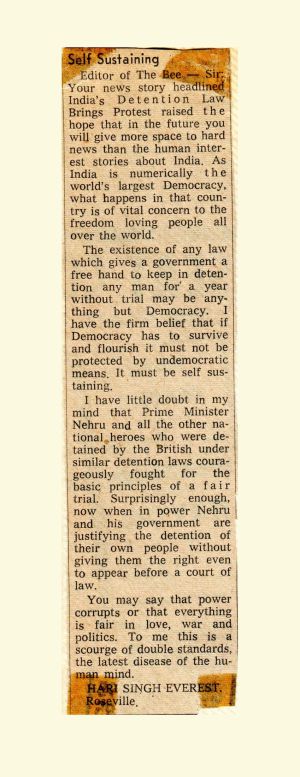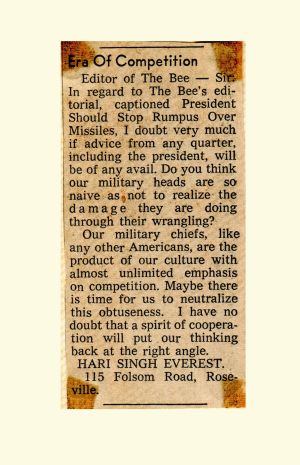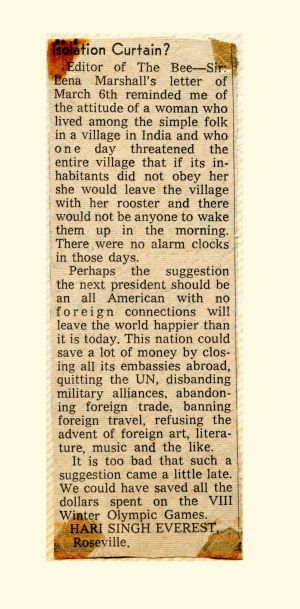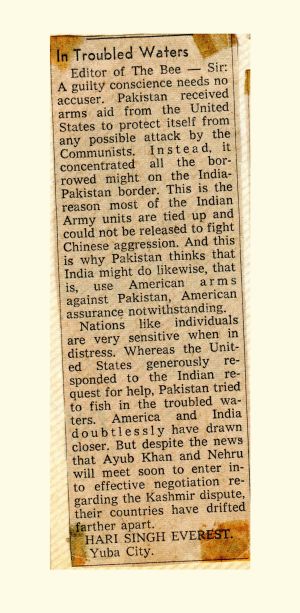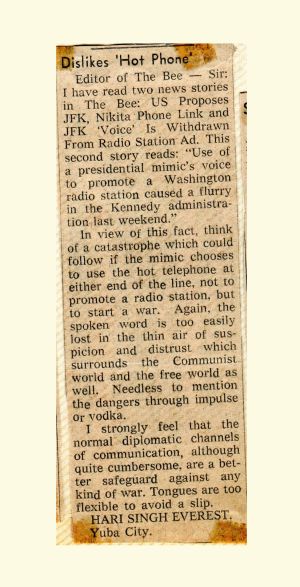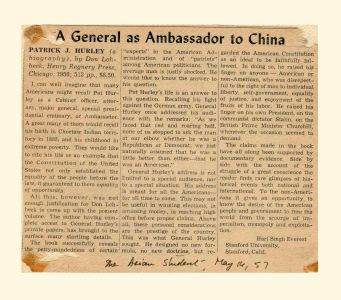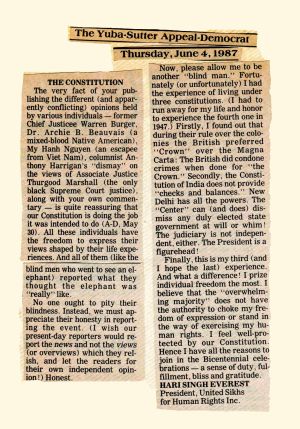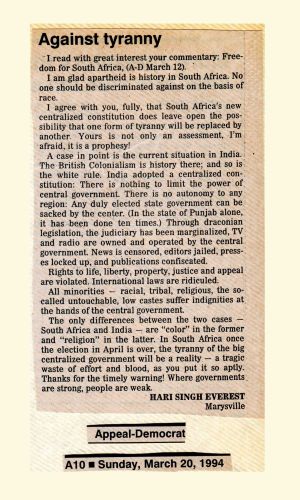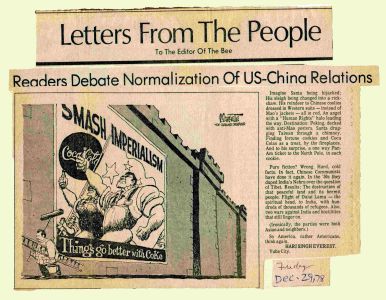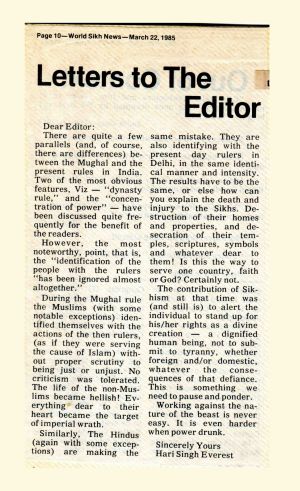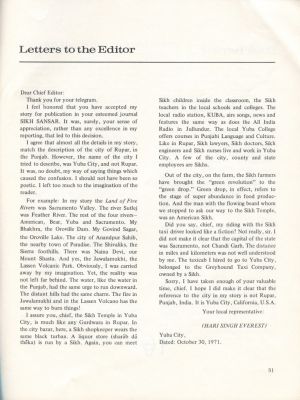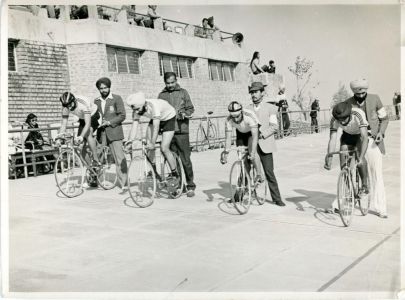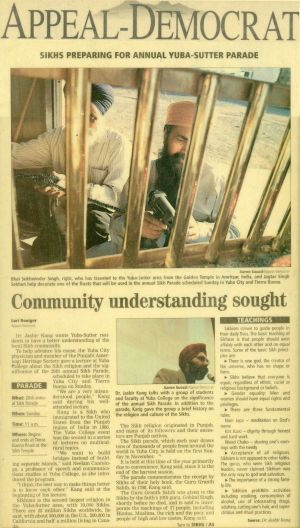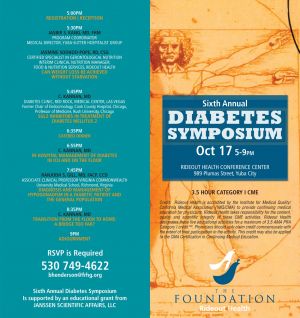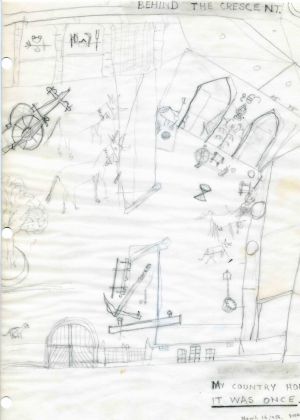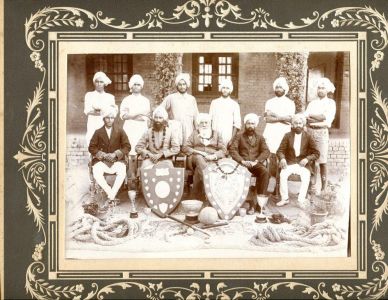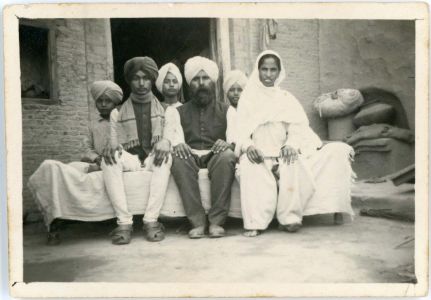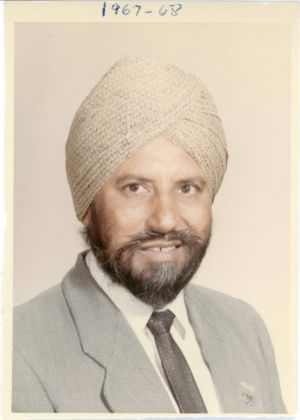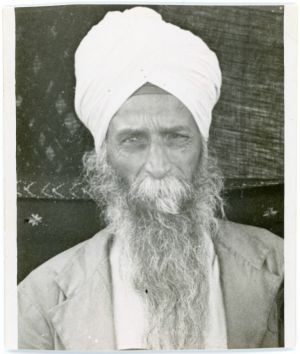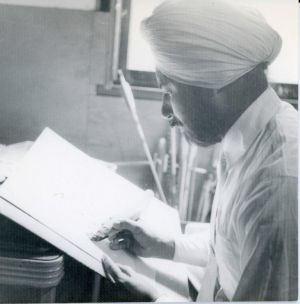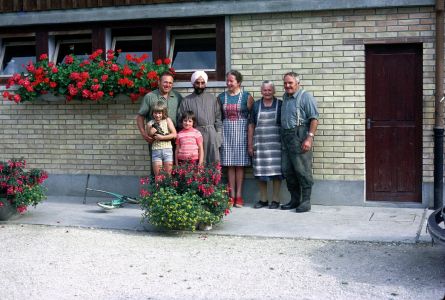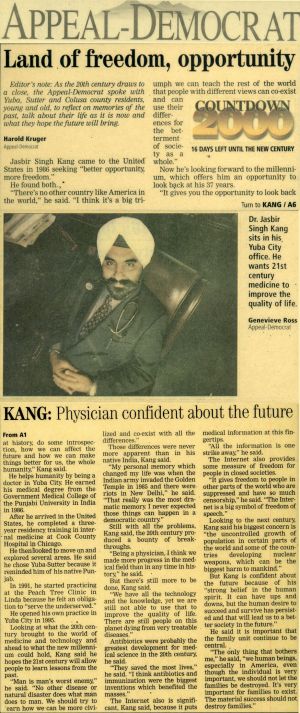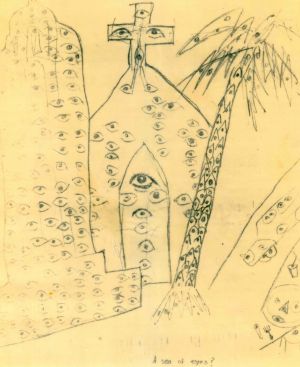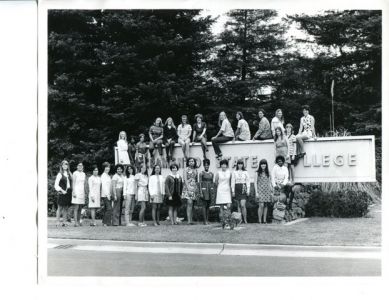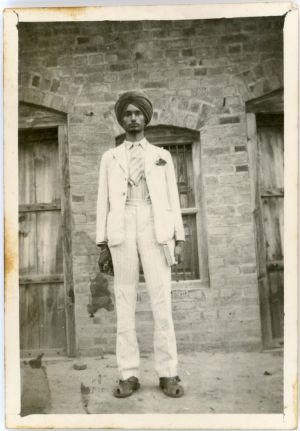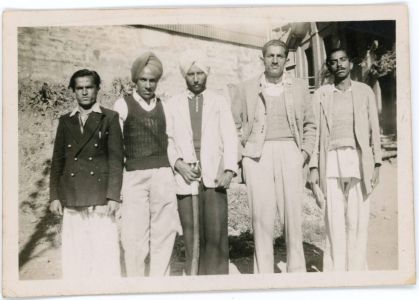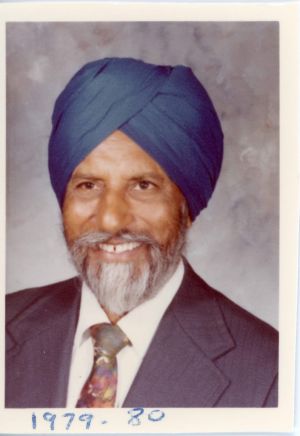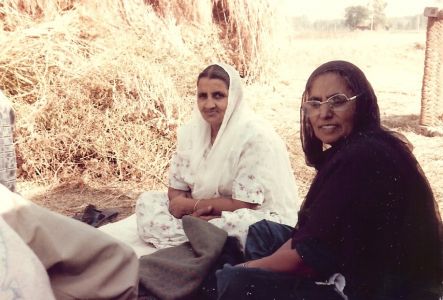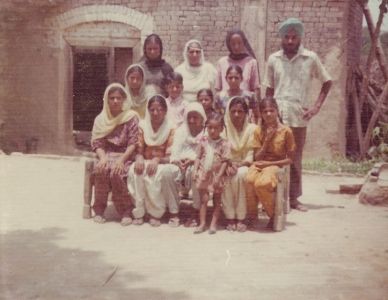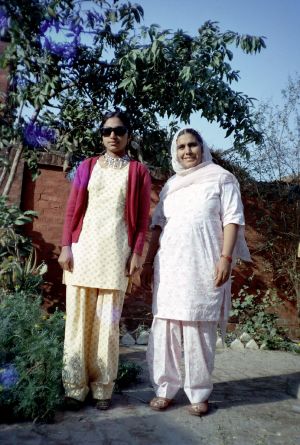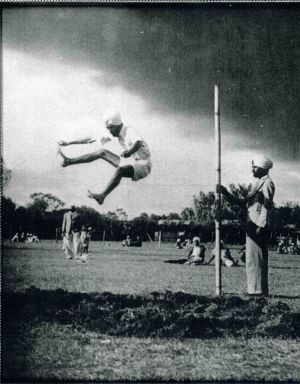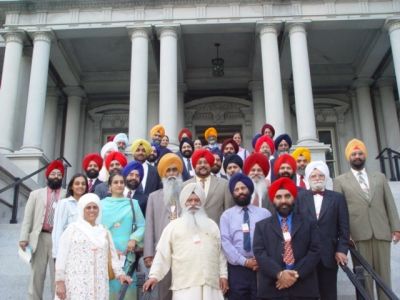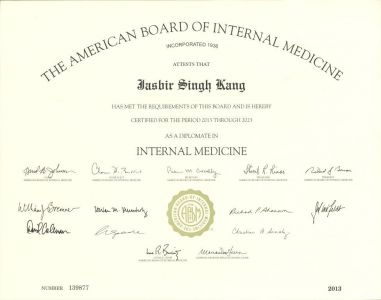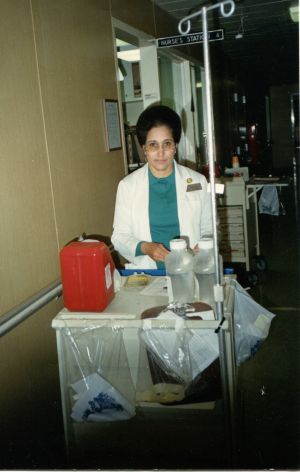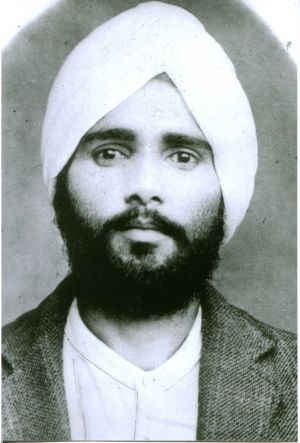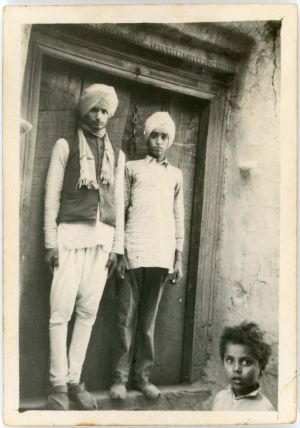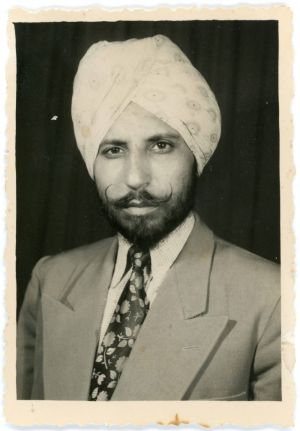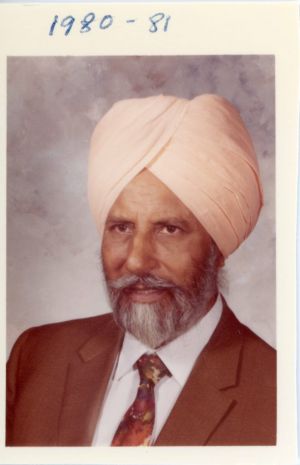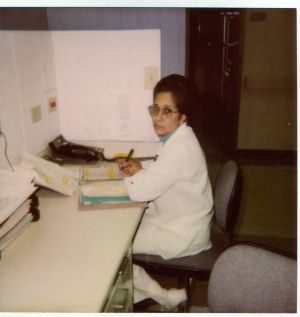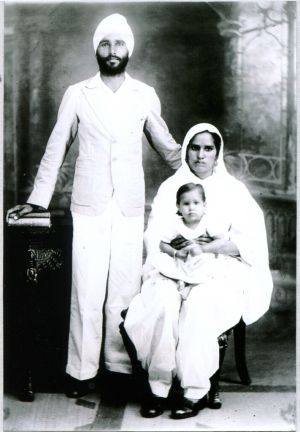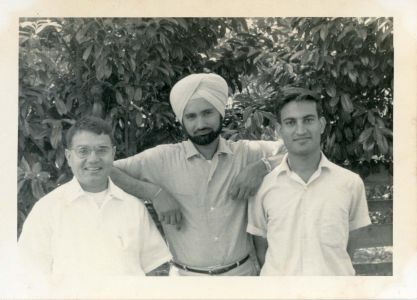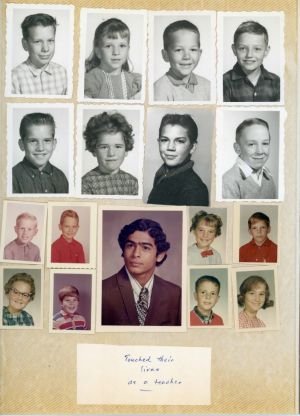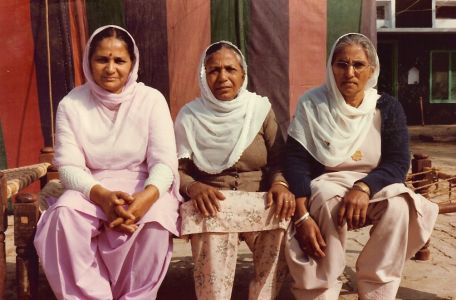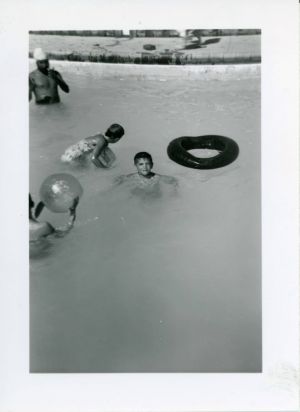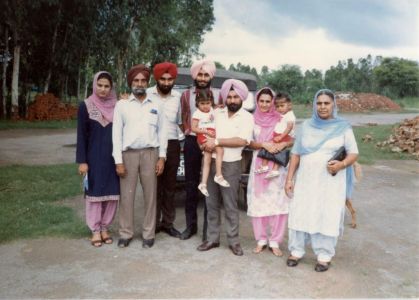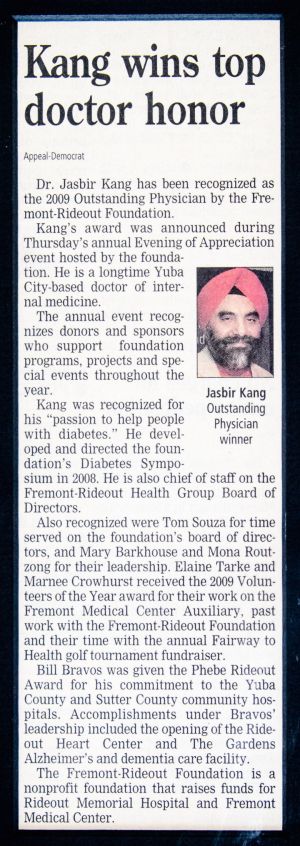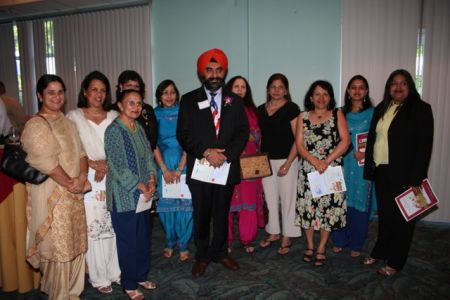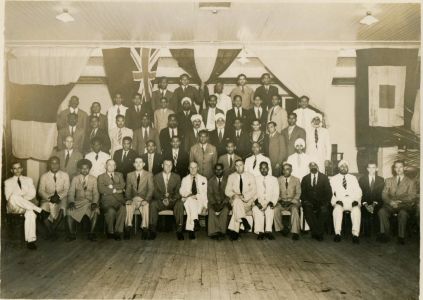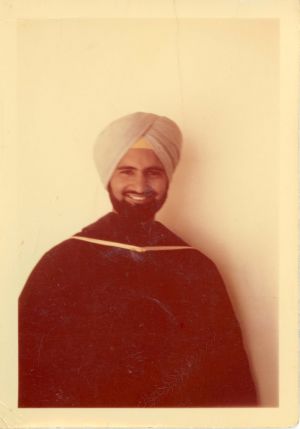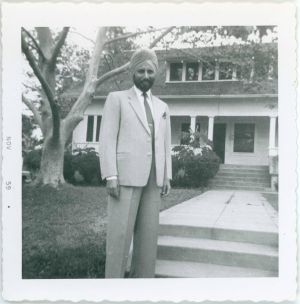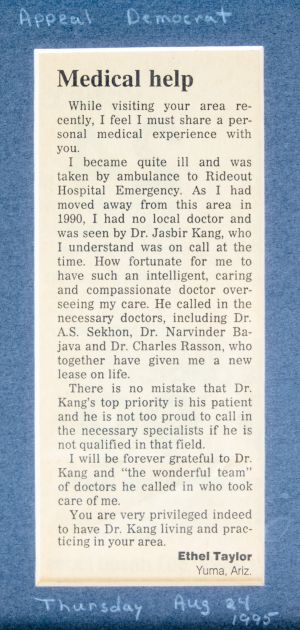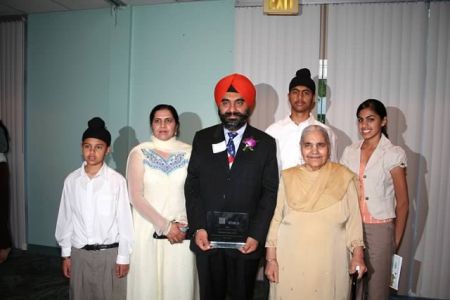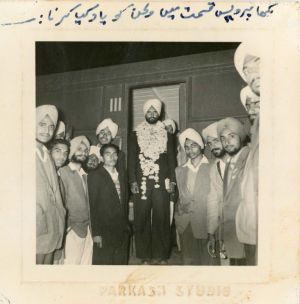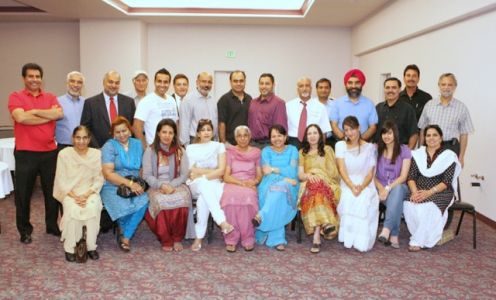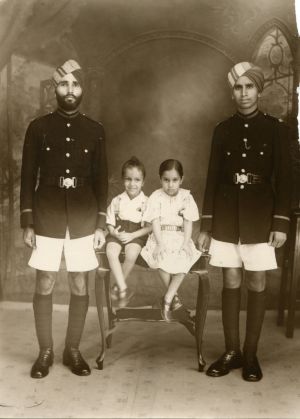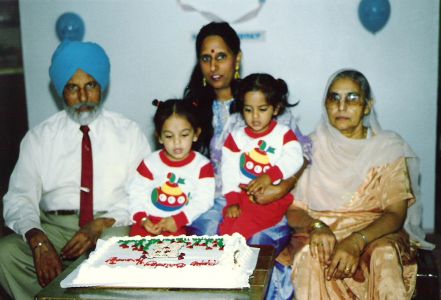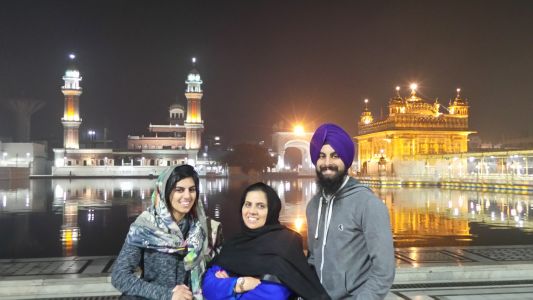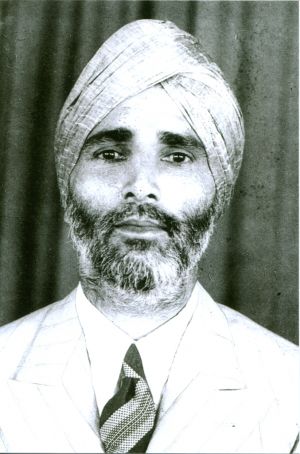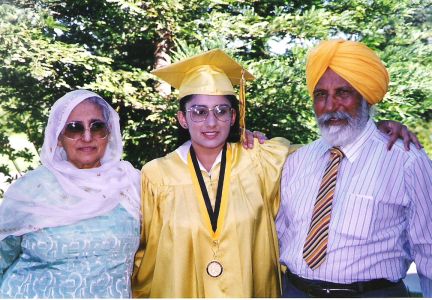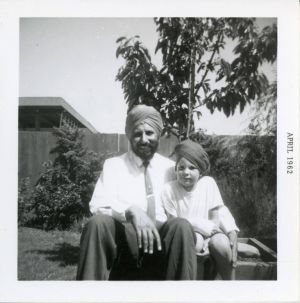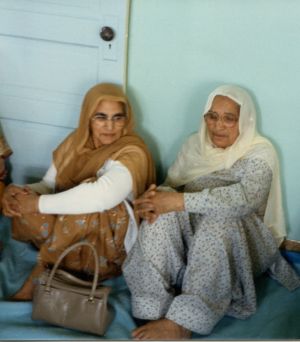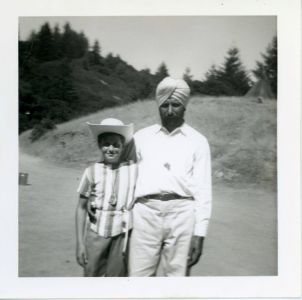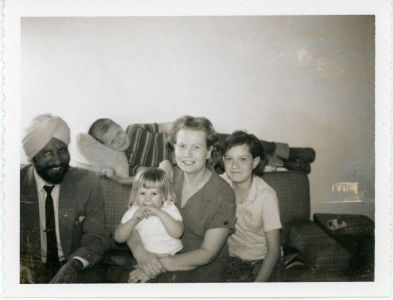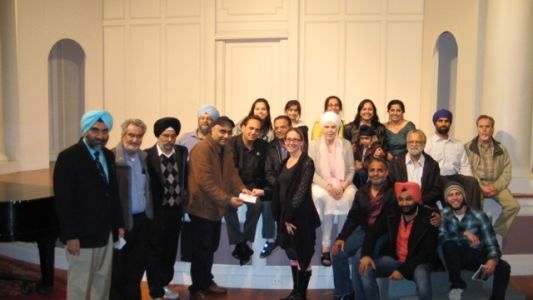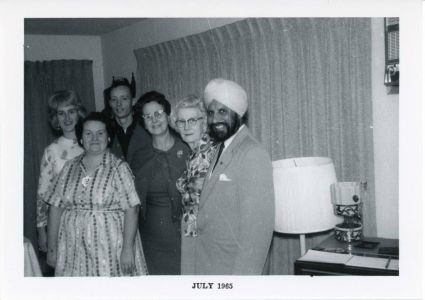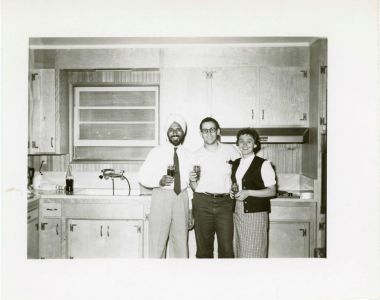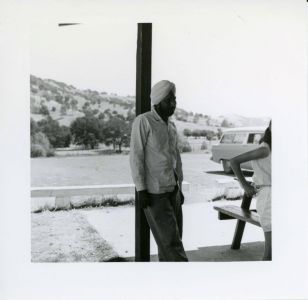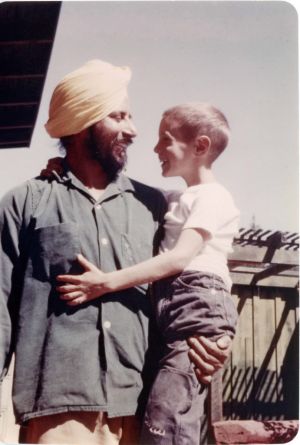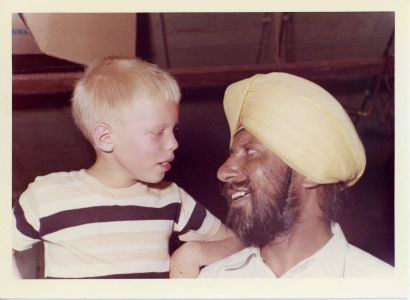
British Colonial Police, Fiji, 1944. Khazan Singh Johl appears on the left. Courtesy of Mrs Harbans Sekhon.
Khazan Singh Johl (November 10, 1906 – June 10, 1971) and his family were one of the hundreds of Punjabi families who migrated to California from Fiji and other locations throughout the global Sikh diaspora since the 1940s.
Khazan Singh Johl was born in Kuala Lumpur, Malaysia in 1906. His father had migrated to Malaysia in 1894, and Khazan lost his father when he was only two years old. After his father’s death, the family returned to India. Khazan Johl completed his high school education in the Punjab, India, and his university education at the Hewitt Engineering College in Lucknow. Finding it difficult to secure a job in India after college, his friend gave him a permit to travel to Fiji by ship.
In 1935, Khazan Johl migrated to Fiji. He first worked as a civil engineer and then joined the Royal Police Force in 1937 where he served for 12 years. He helped resolve legal disputes and served as a court translator. In 1948, he returned to India where he owned a dairy farm. Two years later, he returned to Fiji with his family where he started his own grocery store business. He bought ten acres of land that he subdivided into numerous lots. He lived in Fiji with his wife, Sham Kaur, and three children — a daughter, Harbans, and two sons. He mastered many languages, including Punjabi, Hindi/Urdu, English, and native Fijian. In Fiji, he had a diverse circle of friends within the expatriate South Asian community — fellow Punjabi Sikhs, but also Hindus, Muslims and Christians from South India, Gujarat, and Nepal. Indians who travelled to Fiji developed intimate, lifelong friendships with their fellow shipmates (jihajis) on the long journey by sea from Calcutta to the South Pacific.
In 1955, he and his family migrated to the United States. After arriving in the Bay Area, Khazan Singh Johl and his family briefly stayed with a Gujarati family from Fiji in Berkeley. Several months later, they moved to Yuba City in May 1955 where Tuly Singh Johl helped them start their new lives by renting them a home. Mr Johl had retained capital with his lawyer in Fiji, thus allowing him to purchase land in Yuba City. In 1956, he bought 20 acres of land where he and his family cultivated a peach orchard. The peach farm was successful, growing to 50 acres over his lifetime. Mr. Johl passed away in Yuba City on June 10, 1971.
Khazan Singh Johl was recognized for his bravery with a medal from King George V for his service in the Royal Police Force in Fiji during World War II. He was committed to serving the Sikh community in California in many capacities, including as an Accredited Representative of the Sikh Review. He helped establish the Sikh Study Circle Library in Yuba City and he played a leading role in persuading the Sikh community to build the Tierra Buena Gurdwara in Yuba City. He was a dedicated family man who made sure to bring his family with him when he moved to California. He was also a progressive father who believed in women’s education and professional advancement, and he strongly encouraged his daughter to pursue a professional career during the 1940s.
Mrs Sham Kaur Johl, Khazan’s wife (maiden name Nijjar), also came from the Punjab. She was fortunate in that she accompanied her husband in migrating to the United States from Fiji. She was a highly social woman engaged in domestic life, her family’s peach farming, and service in the Punjabi community in Fiji and Yuba City. In Fiji, she learned how to tailor clothes from a Madrasi tailer who boarded with their family. She made sure to provide for her family’s new life in California — bringing six months of dal and other cooking supplies with her to the US. In Yuba City, she enjoyed a close network with other Sikh women, and she formed a close friendship with Mrs Amar Kaur, Professor Hari Singh Everest’s wife.
All photographs are courtesy of Mrs. Harbans Sekhon.
SOURCE:
Harbans Kaur Sekhon Interview by Nicole Ranganath, June 22, 2016, Yuba City, CA.

